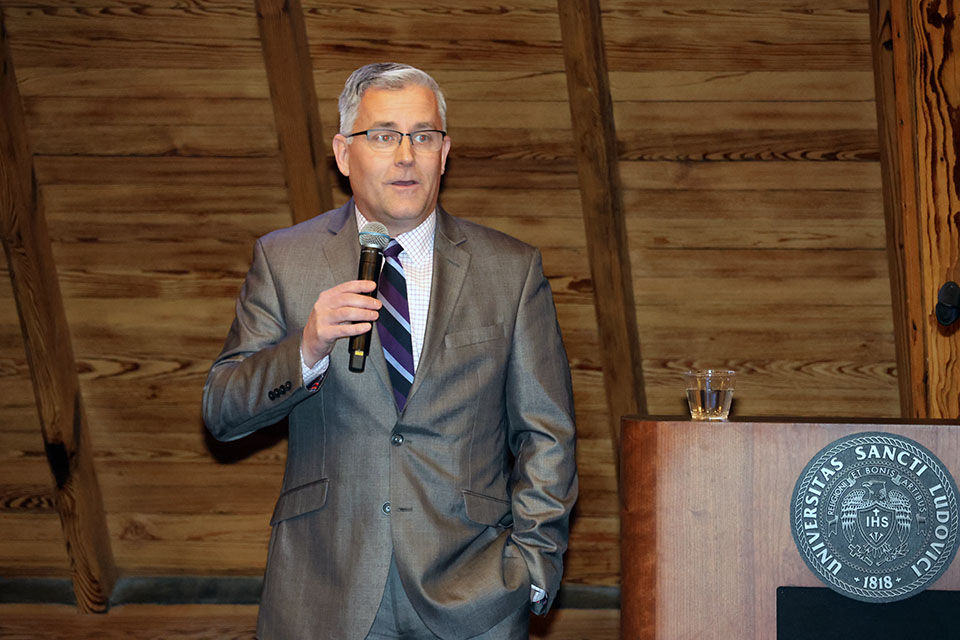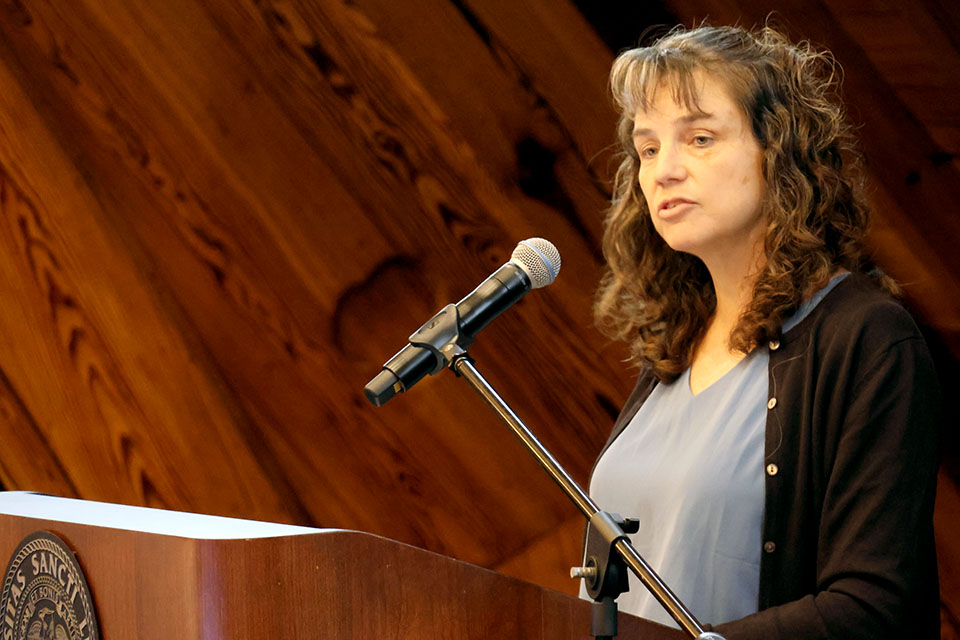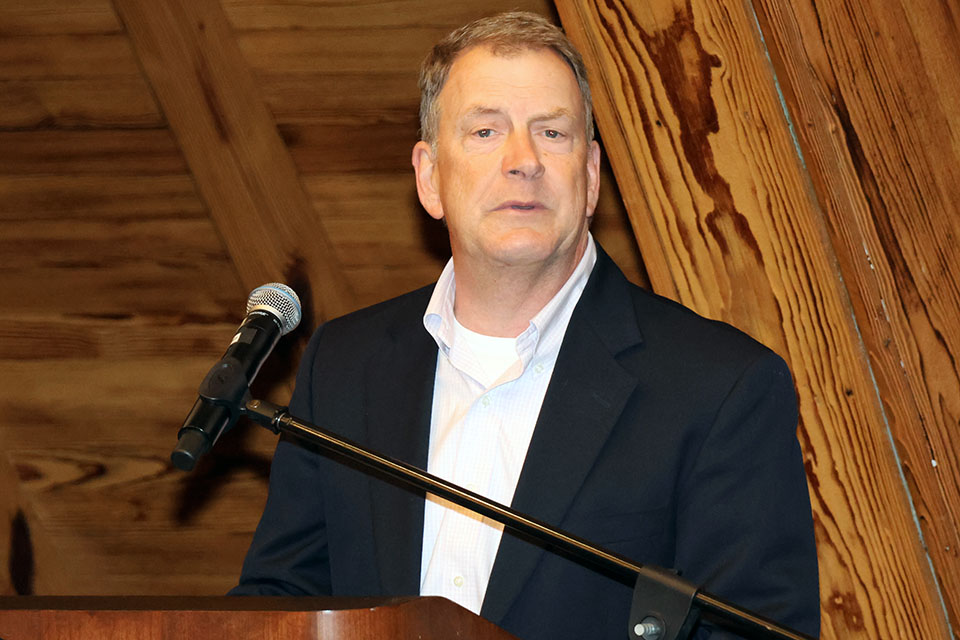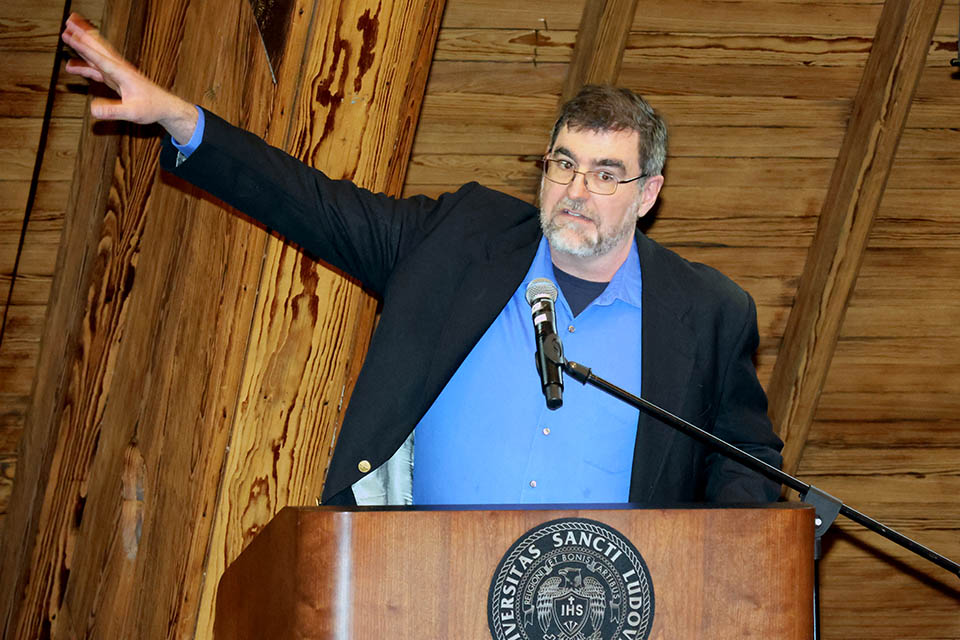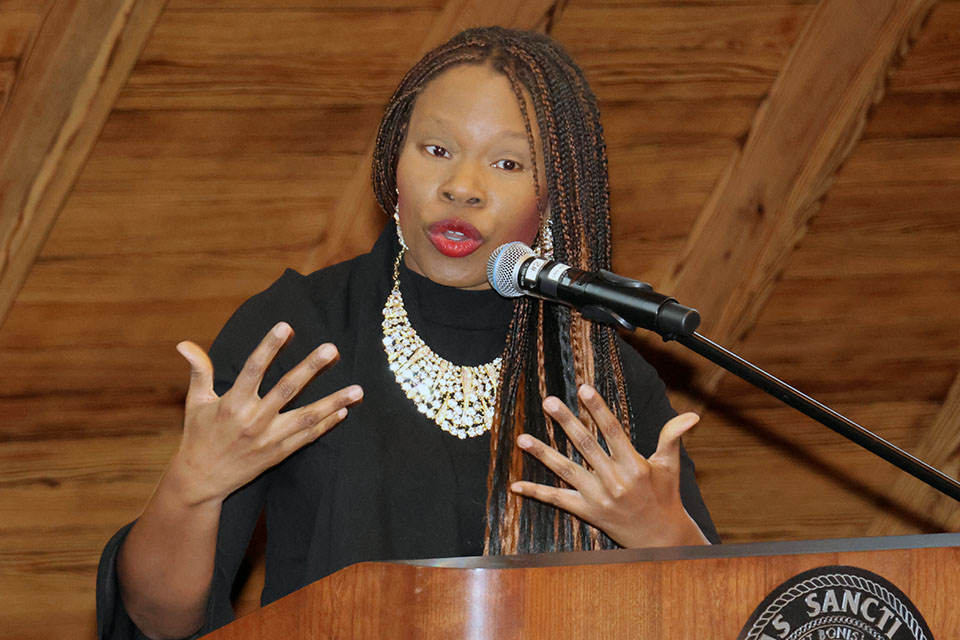Educators Share Perspectives on Teaching at Inaugural Celebration
Award-winning educators shared their thoughts about what teaching means to them at Saint Louis University’s inaugural Celebration of Teaching event.
The event, organized by the Office of the Provost, was designed to highlight SLU faculty members who have won awards for teaching excellence.
Provost Mike Lewis opened the event by sharing his thoughts on the profession. After earning his doctorate in chemistry, Lewis said he had multiple options for the next step in his career. The ability to teach made the decision easy.
“Teaching is really the reason I chose the career path that I’m on,” Lewis said. “I graduated with my Ph.D., and it was in a field that, had I wanted to choose another path, there were paths available that were quite creative and intellectually rewarding in terms of my research and scholarship. But education would not have been part of that path, and that’s what is very important to me.”
Lewis praised the other educators gathered in the Sinquefield Stateroom for their dedication to students.
“It’s a wonderful career and a noble path and I think we take for granted that we get to have this time with these young adults in this formative part of their lives — where we can have this impact on them,” he said.
Following Lewis’ remarks, the event recognized four faculty members who had been honored with teaching awards. The honorees were:
- Margaret Bultas, Ph.D., Nursing, one of the 2023 recipients of the Emerson Excellence in Teaching Award
- Stephen Belt, Ph.D., Aviation, the 2023 recipient of Alpha Sigma Nu’s Nancy McNeir Ring Award for Excellence in Teaching
- Paul Lynch, Ph.D., English, one of the 2023 recipients of the University Core’s Ignite Instructor of the Year Award
- Dannielle Joy Davis, Ph.D., Education, the 2023 recipient of the Reinert Center’s James H. Korn Scholarship of Teaching and Learning Award
Each honoree gave a short TED-style talk about a shared topic. The speakers were asked to share one aspect of teaching that serves as a consolation or North Star.
Bultas said when she heard the topic, two words immediately sprang to mind — rigor and rigid. She said rigor, to her, is about maintaining high standards. Rigid conveys a lack of openness that can inhibit outcomes and limit creativity.
“They have become by North Star in many facets of my teaching and quite frankly my life,” she said. “I keep these two words in mind when I develop courses, when I teach and when I interact with my students. Two words with almost the same letters, but two different meanings, especially in academia.”
Belt shared his thoughts on teaching by invoking St. Ignatius and Jesuit education. He talked about Ignatius’ thoughts on experiences of consolation and desolation and offered his thoughts on the importance of balance in dealing with the highs and lows that come from teaching.
“Patting ourselves on the back is not going to save our souls, neither is beating ourselves up for that matter,” he said.
Lynch opened his talk by highlighting the description of SLU’s Core Seminars. The description included words like passion, commitment, process, personal and model.
“I think words are really important because, first and foremost, they don’t suggest that teaching is the transfer of knowledge — where I take something from my brain and put it in 25 other brains,” he said. “Something else is going on here. It comes back to the Ignatian pedagogical paradigm of context, experience, reflection, action and evaluation. … The (Ignatian pedagogical paradigm) is not seeking to teach someone information, but it actually seeking to transform them.”
Davis closed out the event by talking about her fondness for concept mapping. As a visual learner, Davis said her North Stat has been using concept maps, a diagram that depicts suggested relationships between concepts, which has helped her as an educator.
“For quite a few years, ever since I began tenure track, I’ve always figured out ways to use concept maps,” she said. “I’m a very visual learner so that’s why everything I say has a slide. Because of that, concept mapping has always been important to me in the teaching of different processes. I’ve entered it into all of my courses. I’ve used it as a way for students to learn and mesh the various concepts that I’m teaching them in the classroom and even beyond that.”


















